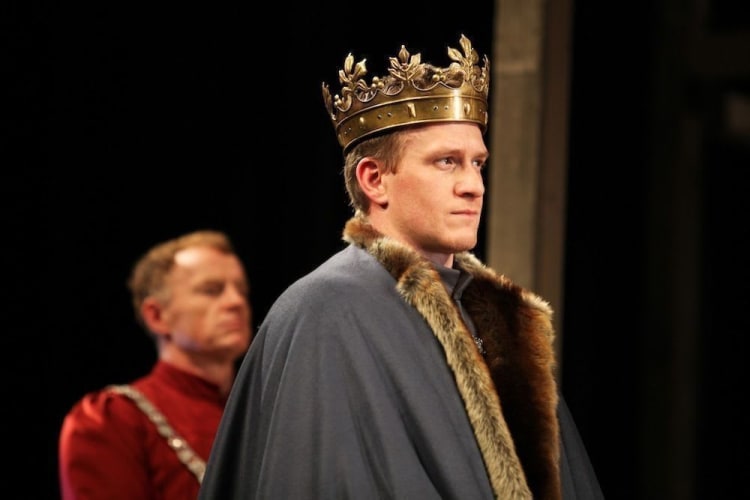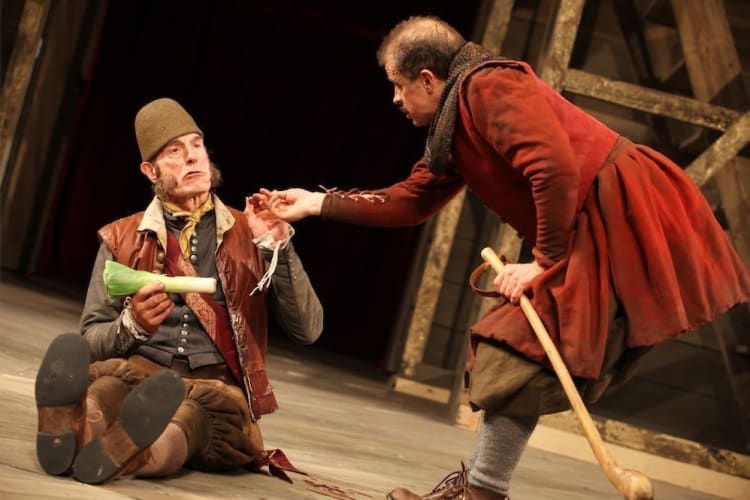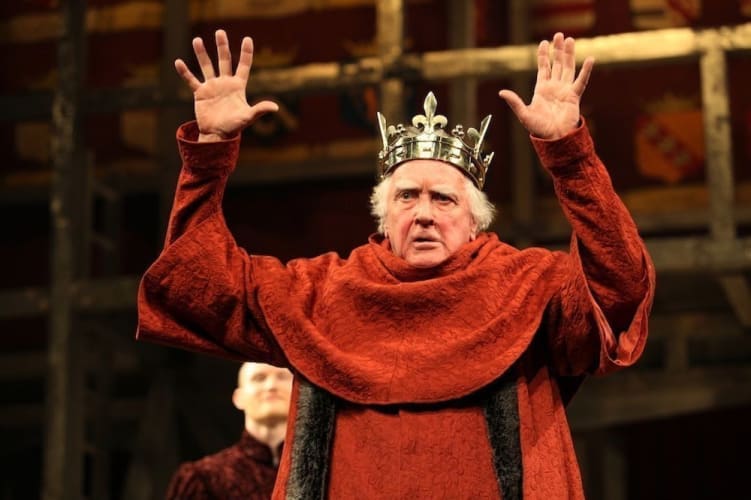Even a genius like Shakespeare had an off-day at the office, the opinion of veteran director Peter Hall who cites an example of an opening scene so dull and perfunctory as could only have been written, he thought, in the grip of a fearsome hangover.
Personally, I think one would be hard-pushed to find a more tedious and punishing passage than Act I Scene II of Henry V in which the Archbishop of Canterbury, in eye-watering detail, explains to Henry just what the 'law Salique' means to his claim to the French throne. The preceding scene is arid enough but Scene II piles Pelion upon Ossa.
Admittedly I wasn’t in the front stalls and my eyesight isn’t the best, but as Canterbury warmed to his task I swear I saw fear in Henry’s eyes. Just as the ghosts of the slain return to haunt Richard III before the Battle of Bosworth and the warith of Caesar, Brutus, before Philippi, ‘the law Salique’ will surely go on to cost Henry many a sweat-tossed night.
The reason for such rare and spectacular dullness lies, I think, not in a tankard too many but the fact that the Bard was not inspired by Henry. His genius thrives in contradiction and ambiguity. In Henry IV Parts I and II, Hal is the heir-apparent drawn to the stews and inns of Eastcheap, peopled by whores, cutpurses and and other lowlife.
But Henry V, to borrow a phrase of Virginia Woolf's, is a creature without either vale or shadow. The boy done good, is now a paragon of virtue and virtue, like happiness, writes white. True, Shakespeare rouses himself in the course of the play to deliver some splendid set-pieces, Henry’s St Crispian’s Day speech, the chilling riposte to the Dauphin’s messenger after the delivery of his master’s snub and above all in the character of Fluellen.
Much of the play is given over to jaw-jaw, and much, inevitably, to war-war. The former can be either taxing or shot through with rhetorical brilliance. The latter must perforce, with such a small cast, depend, as the chorus reminds us, on the imagination of its audience. Where the play becomes interesting think is in the interstices of the above.
Time and again pomp and circumstance give way to bathos; liveried knightsare followed by the raggle-taggle rank and file that make up the bulk of Henry’s army, men like Bardolph, Nim and Pistol; the major key modulates to the minor. Dromgoole negotiates these shifts adroitly and they provide, for me, the choicest moments of the evening.
As Henry V, Jamie Parker is slow to show the iron fist inside the velvet glove. Partly I think this is a matter of technique. Parker has a tendency to speak rather too quickly at times and to swallow his words, as with the first big set speech to the Dauphin’s messenger, a speech he further undermines by repeatedly bouncing a tennis ball.
He grows in stature during the course of the play, however, and the Crispian’s Day speech and the wooing scene with Katherine, both very different, are well done. There is also terrific work by Brendan O’Hea as a scene-stealing Fluellen, a role like Dogberry, that can often be desperately unrewarding. Here though it felt as though Shakespeare came gloriously alive. I also enjoyed greatly David Hargreaves as Nim, the King of France and Lord Erpingham.
As with the majority of Globe productions, the costumes and props are Elizabethan and this allows for plenty of colour and there is wonderful period musical accompaniment. The split-level wooden gantry allows for fluid scene changing which lends a forward momentum to proceedings even when we are not in the midst of the hurly-burly.
The programme argues for a more complex, nuanced play, one that is neither merely an enconium to a 'glorious' chapter in English military history, nor an exposition of the cost and cruelty of war. It is a point well-made but Henry is a king who is characterised by ruthlessness. We have already seen in Henry IV Part II, his banishment of Falstaff. In Henry V, Bardolph, another Eastcheap crony, is hung without hesitation, after being caught looting.
It is as if Henry is both the Duke in Measure for Measure, who has allowed his realm to lapse into licentiousness and Angelo, his deputy, who sets out on the departure of the Duke to extirpate sinfulness from Vienna.
For me, it remains a curious, irresolvable play, but this, I think, is a solid production with much to admire and enjoy. And the Globe and Dromgoole are to be commended for taking this touring production out on the road.


